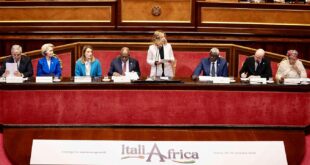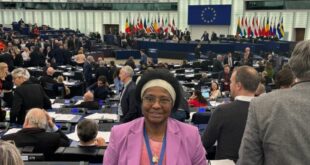The European Union announced on Friday it would recommend abolishing the twice-yearly clock change amid an unprecedented appeal from European citizens who called it disruptive and even harmful to health.
European Commission chief Jean-Claude Juncker said “summer time should be year round” with his commissioners pledging to act on the move during their annual retreat to a lakeside hotel in Genval, Belgium.
The commission is now preparing a proposal to send to the European Parliament and the member states in the following weeks, which could be enacted by 2020 or 2021, Transport Commissioner Violeta Bulc told reporters.
“Millions of Europeans used our public consultation to make their voices heard,” Bulc said.
“The message is very clear: 84 percent of them do not want the clocks to change anymore,” the Slovenian commissioner said in a prepared statement as she spoke to journalists.
She said seven of the 28 member countries already want to abolish the seasonal change, but did not identify them.
According to preliminary results, some 4.6 million European citizens responded to the online poll — the biggest in EU history, Bulc said — on whether they wanted the change.
Since 1996, all Europeans have been advancing their clock by one hour on the last Sunday of March and putting it back one hour on the last Sunday of October.
Under the developing proposal, Bulc said it will be up to each individual member state to decide whether they follow winter time or summer time.
She said the public in Finland, Denmark, the Netherlands and the Czech Republic wanted to stay on winter time throughout the year but the commission still needs to check the results.
Do what citizens say?
Bulc said the proposal must be worked out carefully as it will affect businesses, particularly those that deal with train, bus, truck and airline schedules.
Many European countries began changing the clock seasonally in World War I on the premise it saved energy, with the practice reinforced during World War II and during the energy crisis in the 1970s.
But Bulc said the energy savings argument is less powerful in a modern economy that is also moving to cleaner forms of energy.
“There is no obvious evidence that energy is saved,” she told reporters at the swanky lakeside hotel. “Our habits have changed.”
The commission said citizens complained the change had negative health impacts, such as fatigue, and increased road accidents.
Speaking to German public broadcaster ZDF, Juncker said the survey indicated “summer time should be year-round, and that’s what will happen”.
“I will recommend to the Commission that, if you ask the citizens, then you have to do what the citizens say,” said Juncker, speaking in German.
European Commission spokesman Alexander Winterstein told a news briefing in Brussels that the survey from July 4 until August 16 amounted to a public consultation rather than a referendum.
He said the commission was also taking into account scientific studies in formulating its proposal.
Though an unprecedented number of people responded to the survey, the participation rate was 0.89 percent of the population across the bloc, with the highest in Germany at 3.79 percent and the lowest in Britain, which is leaving the EU, at 0.02 percent.
© AFP
 THE AFRICAN COURIER. Reporting Africa and its Diaspora! The African Courier is an international magazine published in Germany to report on Africa and the Diaspora African experience. The first issue of the bimonthly magazine appeared on the newsstands on 15 February 1998. The African Courier is a communication forum for European-African political, economic and cultural exchanges, and a voice for Africa in Europe.
THE AFRICAN COURIER. Reporting Africa and its Diaspora! The African Courier is an international magazine published in Germany to report on Africa and the Diaspora African experience. The first issue of the bimonthly magazine appeared on the newsstands on 15 February 1998. The African Courier is a communication forum for European-African political, economic and cultural exchanges, and a voice for Africa in Europe.

































